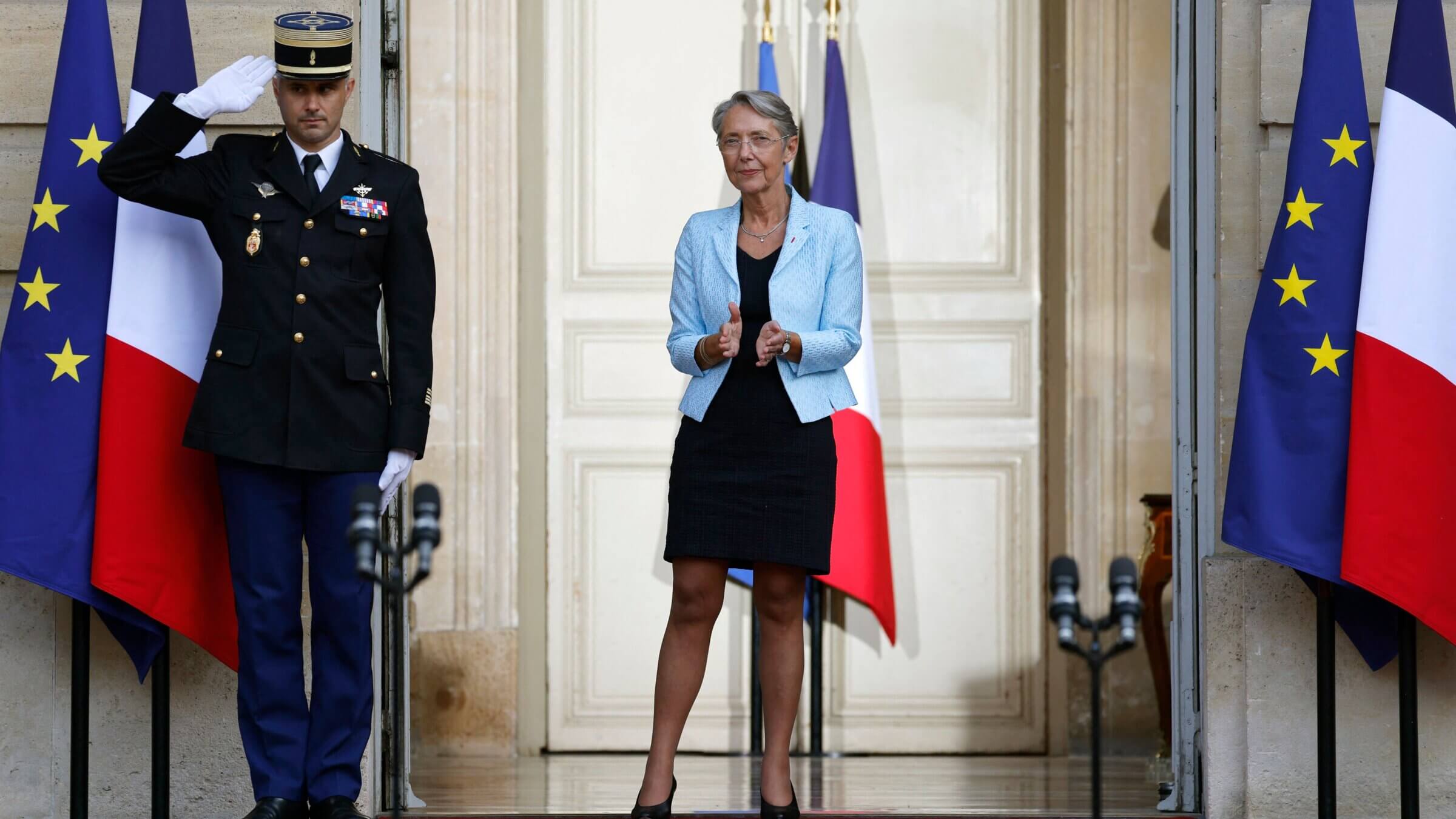France’s newly-appointed prime minister is the daughter of a Holocaust survivor
Her father fled Nazis in Poland in 1939. Today, Élisabeth Borne joins the short list of female EU prime ministers.

France’s newly appointed prime minister, Élisabeth Borne, in Paris on May 16, 2022. Photo by LUDOVIC MARIN/AFP/Getty Images
Élisabeth Borne stepped up to a microphone before a crowd of spectators eager to hear her speak — where only one other woman ever had before.
In front of The Élysée Palace in Paris on Monday, Borne, 61, the daughter of a Jewish Polish refugee, shook hands with outgoing PM Jean Castex for the ceremonial exchange of power to become France’s second female Prime Minister.
“I’d like to dedicate my appointment to all the little girls in telling them: ‘Live your dreams. Never stop fighting for a woman’s place in society,” she told the crowd, and the audience of women watching from all over France.
Borne’s father, Joseph Bornstein, was born in Poland and fled to France in 1939 to escape the Nazis. Because he was captured while part of the French Resistance, Bornstein was deported from France and served time in Auschwitz, but was later freed.
When he passed away in 1972, Borne was given “pupil of the Nation” privileges, a French civic status that gives educational benefits to children whose parents have been injured or killed in war or other attacks.
She attended Ecole nationale des Ponts et Chaussées, one of France’s oldest and most prestigious universities, and went on to serve as Environment, Transportation and Labor Minister and on Macron’s cabinet.
The only other woman to hold the office of prime minister in France was Édith Cresson, who entered office in 1992. Today, Borne is one of only six female prime ministers to lead one of the 27 EU member states.
In the weeks to come, Borne will be busy with France’s most pressing issues as well as legislative elections, in which she’ll try to secure a majority for the centrist party that she and Macron represent.
A message from our Publisher & CEO Rachel Fishman Feddersen

I hope you appreciated this article. Before you go, I’d like to ask you to please support the Forward’s award-winning, nonprofit journalism so that we can be prepared for whatever news 2025 brings.
At a time when other newsrooms are closing or cutting back, the Forward has removed its paywall and invested additional resources to report on the ground from Israel and around the U.S. on the impact of the war, rising antisemitism and polarized discourse.
Readers like you make it all possible. Support our work by becoming a Forward Member and connect with our journalism and your community.
— Rachel Fishman Feddersen, Publisher and CEO





















